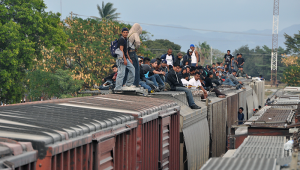By Judith Ugwumadu | 17 April 2014
Africa is losing between $1.4bn and $2.3bn a year because of the high fees charged on money transfers sent to the continent by migrant workers, the Overseas Development Institute has warned.
A transfer of $200 to sub-Saharan Africa is subject to a 12% charge, which was almost double the average rate on transfers to other parts of the world, the ODI.
Reducing charges to world average levels and to the 5% G8 target would generate around $1.8bn annually, enough to pay for the education of almost 14 million primary-age children in sub-Sahara Africa, improve sanitation for 8 million people, or clean water for 21 million, the think-tank claimed.
‘There is no justification for high charges incurred by African migrants. In an age of mobile banking, internet transfers and rapid technological innovation, no region should be paying charges at the levels reported for Africa,’ Kevin Watkins, co-author of the Lost in intermediation report, said.
‘While the governments of the G8 and the G20 have pledged to reduce charges to 5%, there is no evidence of any decline in the fees incurred by Africa’s diaspora.’
The think-tank blamed weak competition, ‘exclusivity agreements’ between money transfers operators, agents and banks, and flawed financial regulation for the problem. It said just two money transfer operators (MTO) – Western Union and MoneyGram – account for two-thirds of remittance transfers to Africa.
In 2013, money transfers to the region were valued at $32bn, or around 2% of gross domestic product. ODI projections to 2016 suggest that transfer payments could grow to over $41bn.
Watkins said: ‘With aid set to stagnate, remittances are set to emerge as an increasingly important source of external finance.’
The report calls for a number of measures to lower Africa’s high money transfer charges. These include: an investigation of MTOs by anti-trust bodies in the EU and the US; greater transparency in the provision of information on foreign-exchange conversion; and regulatory reform in Africa to revoke ‘exclusivity agreements’ between MTOs, banks and agents and promote the use of post offices.













